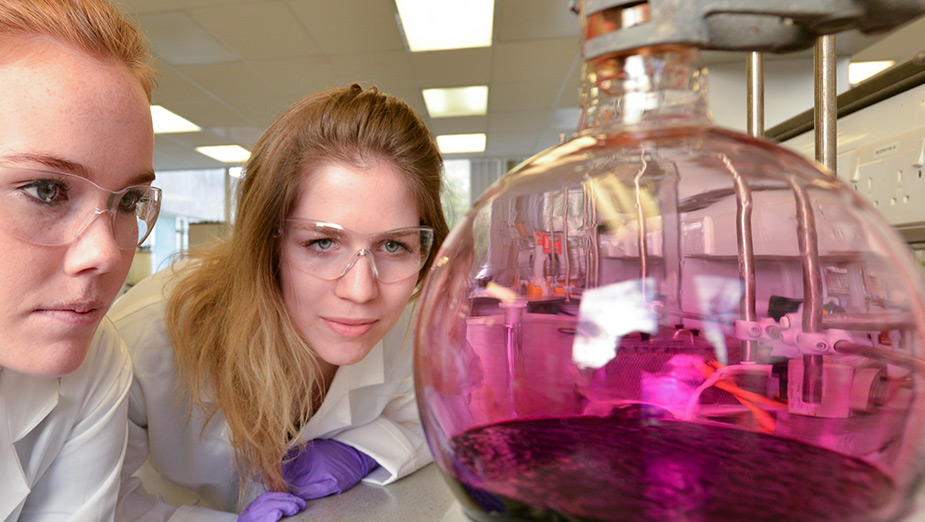Chemistry
Study for a semester or year abroad at a university in the UK’s top 10 for Chemistry*. Discover our chemistry modules below. If you're unsure what to study, follow our top tips for how to choose a module.

Browse our modules
You can see our full list of chemistry modules below.
Year 1
Year 2
Year 3
Not sure how to choose?
Follow our top tips for choosing your modules. You can also find out about our teaching structure, assessment process and how your credits transfer back to your home institution.
Find out more.
Which school will I study in?
You'll study in the Chemistry department which is part of the School of Life Sciences.
Our research is making world-changing impact in many areas, including renewable energy, drug design and cancer.
Find out more.
Our chemistry research
Staff at Sussex are helping to tackle genetic conditions like xeroderma pigmentosum, and improve policy on human tissue donation.
Our research influences the way we teach, and you learn from academics at the forefront of their fields.
Find out more.
Contact us
If you are studying at Sussex for a semester or year and have questions, email sussexabroad@sussex.ac.uk.
*The Guardian University Guide 2021 **Access to facilities dependent on modules studied ***(Our campus is nine minutes by train from Brighton & Hove) survey by accommodation providers Student Living by Sodexo. Rankings based on full undergraduate degree at Sussex.